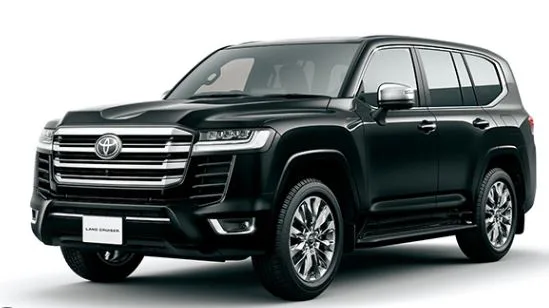Car buying is not just a practical decision; it’s a deeply emotional one. When you walk into a dealership or browse through online listings, you are not merely selecting a means of transportation; you are choosing a part of your identity. The psychology of car buying is a fascinating subject, and it encompasses a variety of factors, including color, branding, and features. In this article, we’ll explore how these elements can significantly influence your car-buying decision. Additionally, we’ll touch upon the role of services like car removal free in the lifecycle of your vehicle.
The Power of Color
Color is one of the first things that catch our eye when we see a car. It’s also one of the most subjective aspects of car buying, with different colors evoking different emotions and preferences.
- Red for Speed and Adventure: Red cars often symbolize excitement, passion, and a need for speed. They tend to attract individuals who seek adventure and want to stand out on the road.
- Silver for Modernity and Elegance: Silver and metallic tones convey a sense of modernity, sophistication, and timelessness. These colors are popular among those who want a sleek, stylish look.
- White for Purity and Minimalism: White cars are often associated with purity and simplicity. They project a clean, minimalist image and are a popular choice for those seeking a fresh start.
- Blue for Trustworthiness and Reliability: Blue is often seen as a dependable and trustworthy color. It appeals to individuals who prioritize reliability and a sense of security.
- Black for Luxury and Power: Black cars exude luxury, power, and prestige. They are a preferred choice for those who want to make a bold statement.
The Role of Branding
Car brands have distinct identities and reputations, and these play a significant role in the car-buying process.
- Legacy and Tradition: Brands like Mercedes-Benz and BMW are known for their legacy and tradition, appealing to buyers who value history and status.
- Innovation and Technology: Tesla and other electric car manufacturers represent innovation and a commitment to sustainability, attracting environmentally-conscious consumers.
- Reliability and Practicality: Brands like Toyota and Honda have earned a reputation for reliability and practicality, making them popular choices for those seeking dependable transportation.
- Sportiness and Performance: Brands like Porsche and Ferrari are synonymous with high-performance and sportiness, appealing to enthusiasts and thrill-seekers.
Features that Seal the Deal
Beyond aesthetics and branding, the features of a car are crucial in influencing the buying decision.
- Safety Features: Advanced safety features like adaptive cruise control, lane-keeping assist, and autonomous emergency braking provide peace of mind for families and safety-conscious buyers.
- Infotainment Systems: Modern infotainment systems with smartphone integration, navigation, and high-quality audio can enhance the overall driving experience.
- Fuel Efficiency: Fuel efficiency and environmental concerns drive many buyers to opt for hybrid or electric vehicles.
- Comfort and Luxury: Features like leather seats, advanced climate control, and premium sound systems can make the driving experience more luxurious and enjoyable.
Emotional Connection to Cars
Beyond the practical considerations of color, branding, and features, there is often a deep emotional connection that people form with their cars like scrap cars brisbane (cash for car) services. This emotional bond can be influenced by personal experiences, childhood memories, or even pop culture references. For example, someone may choose a certain car model because it reminds them of a beloved family vehicle from their childhood or because it’s the same make and model driven by their favorite movie character. Understanding this emotional attachment is crucial for car manufacturers and marketers when designing and promoting their vehicles.
The Role of Social Influence
Car buying decisions can also be influenced by social factors. People often seek approval and validation from their peers, family, and friends. They may choose a car that aligns with the image they want to project or one that fits in with their social group. This can be particularly relevant for younger buyers who are more likely to be swayed by peer opinions and trends.
Environmental Consciousness
In recent years, environmental concerns have played a significant role in car buying decisions. Many consumers are opting for eco-friendly vehicles, such as hybrids and electric cars, as a way to reduce their carbon footprint. This shift in consumer preferences has prompted car manufacturers to prioritize sustainability and develop cleaner, more energy-efficient options.
Financial Considerations
While emotions, color, branding, and features are vital, financial considerations remain a primary driver of car purchases. Factors such as price, financing options, insurance costs, and resale value all weigh heavily on a buyer’s decision. Dealerships and manufacturers often offer incentives and promotions to make their vehicles more financially appealing to potential customers.
The Future of Car Buying
The psychology of car buying is evolving with advancements in technology. Virtual reality showrooms, online configurators, and augmented reality apps now allow buyers to visualize and personalize their vehicles before making a purchase. Additionally, data analytics and artificial intelligence are being used to provide more personalized recommendations to prospective buyers, further tailoring the car-buying experience.
Conclusion
The psychology of car buying is a complex interplay of personal preferences, emotions, and practical considerations. Color, branding, and features all play a pivotal role in influencing your choice when selecting a new vehicle. Whether you’re drawn to a sleek black sports car, a reliable white sedan, or an innovative electric vehicle, your decision is shaped by a combination of factors unique to you.
Furthermore, as your car ages and eventually reaches the end of its useful life, services like “cash for scrap cars Caboolture” provide a convenient and environmentally responsible way to part with your old vehicle. These services not only help you free up space and get rid of an unsightly scrap car but also contribute to the recycling and reuse of automotive materials, reducing your ecological footprint. In the end, the psychology of car buying extends beyond the purchase itself, influencing every stage of your car ownership journey.




